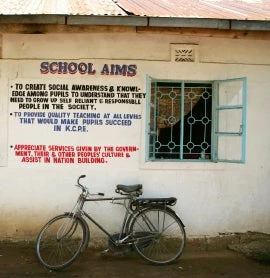
I share this enthusiasm and may even have contributed in a small way to it. But at a recent aid data conference, I thought I’d consider the criticisms that such efforts have received, and some responses.
1. They already know. Poor people don’t need to be told that the teacher is absent from the public primary school. Their children have been telling them this for years. But the point of collecting these data is not to inform individual families about the quality of services in their own village: it is to let them know that the quality of services is poor in neighboring villages—and may be due to a failure in public policy. Otherwise, some people may think that an absentee teacher is just another feature of the lot of the poor. It is also important that the policymaker knows that everybody knows.
2. They can’t absorb the information. Note the contradiction with the first critique. True, these people work 14-hour days, and now we expect them to attend village meetings at the end of the day so we can inform them about the information we have collected. Furthermore, how can illiterate parents understand data about their children’s schooling? The facts, however, are different. There is considerable evidence that illiterate parents have a better idea about their children’s learning than do literate parents. The reason is that they care deeply about their children learning to read and write—the success of Peru’s Recurso program, where parents embraced a program where they tested children’s reading ability in the home, speaks for itself. To be sure, we should not romanticize information. A study in India of a program that awarded extra curriculum resources through a village education committee (VEC) revealed that, ten years into the program, 93 percent of the villagers had not heard of the VEC. Of the remaining 7 percent, 70 percent (or 5 percent of the total) could not name a single member of the VEC—and this included people who were themselves members of the VEC!
3. There is limited evidence that information improves outcomes. True, most of the evidence on information campaigns and transparency more generally is about how these have affected intermediate indicators, not final outcomes. For instance, the work on participatory budgeting only shows how the composition of budgets have changed—not whether the new composition is better for poor people. There is even evidence that information can be harmful—as with hate radio broadcasts in Rwanda that, according to one study, contributed to 9 percent of the genocide. The main reason for the paucity of evidence on outcomes is that the underlying service delivery failure is political, and it is difficult to disentangle the effects of information on the political system. This takes us to the fourth criticism.
4. When the problem is politics, information won’t help. There is no question that the reasons for absentee teachers or poorly-built bridges have their roots in politics. In many countries, teachers organize the campaigns of the local politicians, in return for which they get a job from which they can be absent. But even in these circumstances, information can help. The reason why these politicians continue to be elected—even if they are responsible for the poor quality of public education—is that voters don’t always associate the empty classrooms or clinics with a failure of the politician. Knowing this, politicians have an incentive to obfuscate further—by, say, opening new schools or providing public works jobs (private goods) to target groups who would vote for them. Information can help societies break out of this low-level political equilibrium. If information can be presented to voters in an accessible and salient manner—for instance, teacher absentee rates broken down by the local politician’s constituency—then there is a chance that voters will be better informed at the next election. And if the politician recognizes this, he or she may have an incentive to improve services before the election.


Join the Conversation